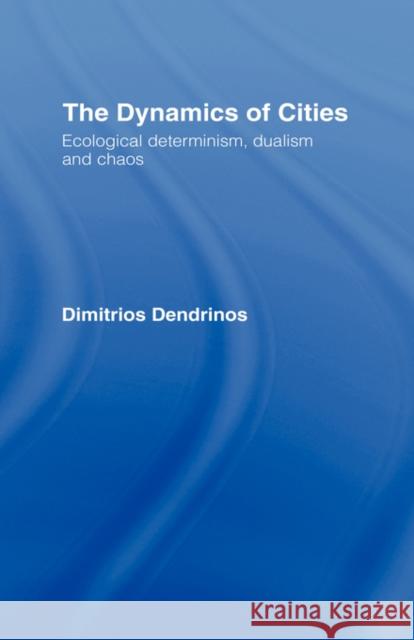The Dynamics of Cities: Ecological Determinism, Dualism and Chaos » książka
The Dynamics of Cities: Ecological Determinism, Dualism and Chaos
ISBN-13: 9780415077217 / Angielski / Twarda / 1992 / 416 str.
The Dynamics of Cities: Ecological Determinism, Dualism and Chaos
ISBN-13: 9780415077217 / Angielski / Twarda / 1992 / 416 str.
(netto: 672,22 VAT: 5%)
Najniższa cena z 30 dni: 368,33
ok. 22 dni roboczych.
Darmowa dostawa!
The economy and geography of human population concentrations have been characterized throughout history by numerous dualisms and spatial disparities. Extreme poverty and equally extreme wealth coexist side by side. Are they connected or are they purely random? The Dynamics of Cities addresses these questions, arguing that both the interaction of space and time and the comparative advantage of location are interlocked into a simple but rich code of evolution. Drawing on recorded evidence, available on a global scale and spanning the past quarter century, Dimitrios Dendrinos argues that the dynamics of the world's largest cities exhibit patterns of chaos. He suggests that simple, general and powerful macrodynamic processes guide the growth and decline of present day urban agglomerations, as well as cities of the past. Large in scale, broad in scope and long in term, deterministic forces govern these human habitats; Governments stand to have little impact upon such macroecological determinism.











